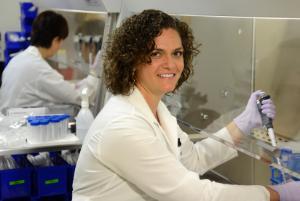Cooperative Center on Human Immunology
 Cooperative Center on Human Immunology (CCHI)
Cooperative Center on Human Immunology (CCHI)
Vaccines are widely viewed as cost-effective interventions to prevent and control classical endemic and epidemic infectious diseases, as well as to limit the transmission and impact of emerging infections and certain bioterror agents. However, the development of new and improved vaccines against some of these agents is hampered by a lack of information concerning the "true" (i.e., operative) immunological mechanisms underlying the protection elicited by natural infection and by candidate vaccines. This is particularly true with pathogens that enter the host via mucosal surfaces, including the gastrointestinal (GI) tract. The CCHI is focused on furthering our understanding of the protective immunological mechanisms that can be elicited in the GI microenvironment of humans. Because the normal GI flora (microbiota) is certain to influence the host immune response, we are conducting pioneering studies on the interactions between the local intestinal microbiota and the host immune response in humans.
We are conducting in-depth studies of the major gram negative bacterial human pathogen Salmonella enterica serovar Typhi. There is limited information available concerning the determinants of protective mucosal immunity, most of which comes from studies in adults; therefore, we are also focusing considerable efforts to the responses to oral immunization with the licensed Ty21a typhoid in children and the elderly. We are using state-of-the-art in vitro organotypic models of the human intestinal mucosa and mucosal biopsy explants to study the initial interactions between S.Typhi and the host, including innate immunity and physiological consequences.
Because of the complexity of this undertaking, we have assembled a multidisciplinary team consisting of renowned investigators in the fields of innate and adaptive immunity, molecular biology, mucosal biology and physiology, biochemistry, high-throughput technology, microbiology, genomics, protein chemistry, clinical gastroenterology, and vaccinology.

